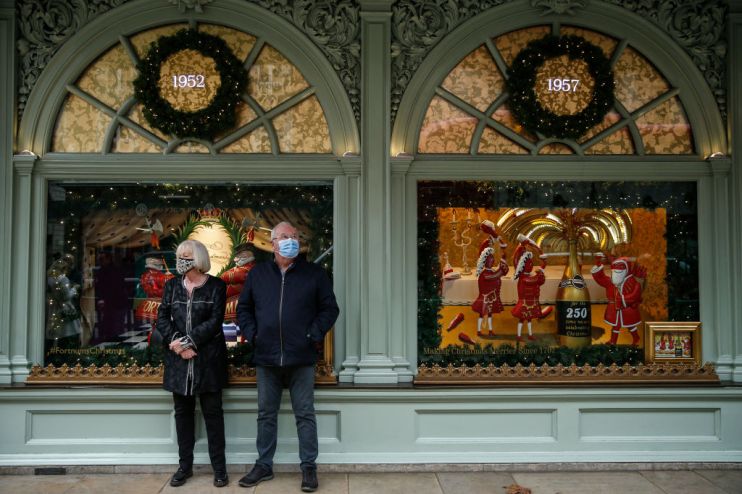UK inflation drops to 0.3 per cent as clothes and food prices sink

The UK’s inflation rate fell sharply to 0.3 per cent as food and clothes prices eased during England’s month-long lockdown, according to the latest official figures.
The headline CPI rate sank from 0.7 per cent in October to 0.3 per cent in November, data from the Office for National Statistics (ONS) showed.
Clothes and footwear prices were 3.6 per cent lower than the same month last year.
Prices of food and non-alcoholic drinks, across categories from vegetables to confectionery, also lowered inflation, after falling 0.5 per cent in the year to November.
However, rising costs of games, toys and hobbies as Brits turned to home entertainment during lockdown partially offset the decline.
“With significant restrictions in place across the UK, inflation slowed, predominantly due to clothing and food prices,” said Jonathan Athow, deputy national statistician at the ONS.
“Also, after several months of buoyant growth, second-hand car prices fell back a little,” he added.
The latest inflation figures come amid evidence that shop prices are falling in the run-up to Christmas, as retailers race to clear stock and avoid adding to the list of high street casualties.
UK inflation has been falling gradually for the past two years, but has dropped more sharply during the coronavirus pandemic.
Inflation reached a four-year low of 0.2 per cent following the government’s Eat Out to Help Out scheme over the summer, alongside a slash in VAT which knocked down prices in restaurants and cafés.
“Inflation dropped in November thanks to a Black Friday effect, with increased discounting by retailers pushing down the cost of clothing and footwear,” said Laith Khalaf, financial analyst at AJ Bell.
“Of course, Black Friday occurs every year, but this time around discounts were particularly steep in clothing sales, which led to an unseasonal fall in prices. That highlights the continued pressure on the retail sector, and while price cuts on the shelves are good for consumers, they don’t bode well for profits.”
But Yael Selfin, chief economist at KPMG, said inflation could accelerate in coming the months as a result of Brexit border frictions, which could push some prices up more than usual.
“If a Brexit deal is reached we therefore expect inflation to rise to an average of 1.3 per cent next year from 0.9 per cent in 2020.”